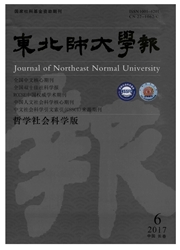

 中文摘要:
中文摘要:
宗教作为一种特殊的社会历史现象一直伴随着人类的文明演进。为了提供一种超越人性的终极关怀,死亡和来世一直是各种形式的宗教所共同关注的议题。作为最早诞生的人类文明之一,古埃及人对于死亡和来世的思索经历了漫长的历史发展过程,而“来世审判”就是这一过程的最终体现。通过新王国时期《亡灵书》第125章对于“来世审判”的详尽阐释,古埃及人将“来世”与“现世”、宗教和道德紧密地联系在一起,使古埃及宗教从初期崇拜自然力量的原始宗教转变为涉及道德哲学的复杂宗教体系,并对后世的犹太教、基督教和伊斯兰教等宗教的来世观产生了深远的影响。
 英文摘要:
英文摘要:
As a unique social and historical phenomenon, religion has been invariably accompanied by the evolution of human civilization. To provide an ultimate concern that transcends human nature, death and afterlife become a common concern for all forms of religion. Being as one of the earliest civilizations born in the dawn of human history, the ancient Egyptians have tried to illustrate their thoughts of death and afterlife through varied ways, and the "judgment of the Dead" is among them the most explicit and comprehensive answer to all questions. Through the elaboration of this idea in Chapter 125 of The Book of the Dead during the New Kingdom, the closed link between religious theory and moral codex has been properly established by the ancient Egyptian theology, which transformed the ancient Egyptian religion from a primeval belief of nature worship, which also has a profound impact on the other religious thoughts in the middle east, such as Judaism, Christianity and Islam.
 同期刊论文项目
同期刊论文项目
 同项目期刊论文
同项目期刊论文
 期刊信息
期刊信息
